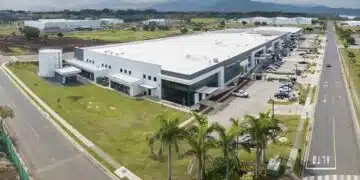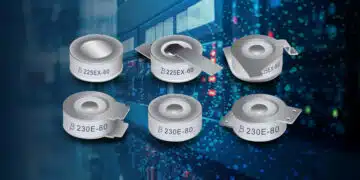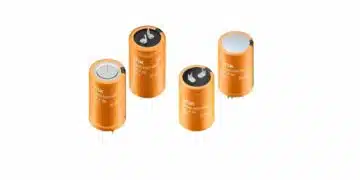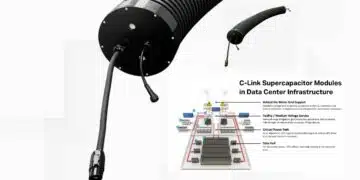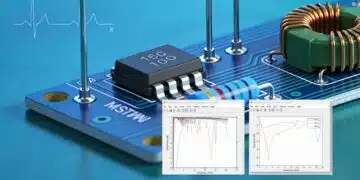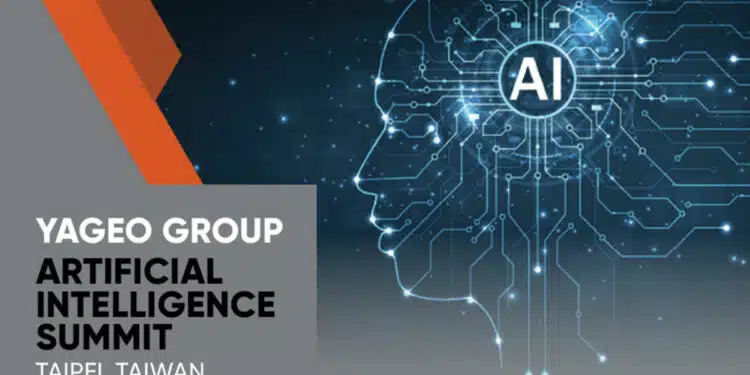Yageo Corp, one of the world’s top three passive component suppliers, said its products have been widely used in artificial intelligence (AI) applications, including servers powered by Nvidia Corp’s AI chips, which has helped to boost its AI-related business’ revenue contribution to about 5 percent, according an article published by Taipei Times.
This growing revenue from AI has been one of Yageo’s major achievements of the past six years, as the company transforms itself into a premium passive component supplier and shakes off cut-throat price competition from Chinese rivals in the standard components segment, Yageo chairman Pierre Chen told reporters on the sidelines of an AI summit arranged by the company in Taipei on Thursday.
Yageo has also dramatically reduced China’s revenue contribution to about 24 percent last year, versus as high as 78 percent in 2017, Chen said.
As part of its efforts to expand its product spectrum, Yageo dived into the AI sector about five years ago, concentrating on developing components and technologies to enhance power efficiency for AI applications, Chen said. In Taiwan, Yageo has risen to become the largest supplier of X6S multilayer ceramic capacitors (MLCC), a high-capacity MLCC that is used in AI servers, Chen said. “We have been deeply involved in the AI [sector]… Yageo will not be absent from any areas linked to AI applications,”. “A majority of the market’s main AI players are our customers from Taiwanese assemblers to overseas AI companies,” he added.
As a long-term supplier to Nvidia, Yageo has also expanded its ability to supply high-capacitance MLCCs for Nvidia’s latest and most powerful GB200 superchip through companies on Nvidia’s approved vendor list, the company said. Global hyperscalers such as Amazon.com Inc and tech giants such as Meta Platforms Inc and Microsoft Corp are keen on investing in servers and data centers to help customers doing AI training and referencing over the next few years.
Chen said that he expected Yageo to benefit from this AI boom. Yageo develops passive components to enhance power management and power efficiency for customers’ AI products to address the power consumption issue, it said.
Last year, Yageo was the world’s biggest producer of polymer tantalum capacitors, which is mainly used in AI servers. Aside from servers, Yageo’s components also can be found in a wide range of chips that are used in laptops, accelerator cards, switches and autonomous vehicles. “Yageo now is not the company as it was known 10 years ago,” Chen said.
The MLCC business only accounts about 17 percent of the company’s total revenue, as it has broadened its product portfolios through a series of mergers and acquisitions, Chen said. In 2017, it accounted for half of the company’s overall revenue.
Magnetic components were Yageo’s biggest revenue source at 30 percent during the first half of this year, company data showed. As supply chain management becomes an increasingly complicated challenge, Yageo has been tasked to provide a total solution to customers, Chen said. Passive components only make up a mere 5 percent of customers’ component costs, he added.
YAGEO Group AI Summit 2024: A Resounding Success with Standing Room Only Attendance
YAGEO Group hosted its highly anticipated AI Summit in Taipei, drawing a full house with a standing room only crowd. The event attracted a diverse group of institutional investors, broker analysts, and media to listen to academic experts and industry leaders discussing the future of AI, its challenges, and the innovative solutions driving the industry forward.
The summit opened with insightful remarks from YAGEO Group’s Founder and Chairman, Pierre Chen, who highlighted the company’s transformation and role within the AI ecosystem, emphasizing that today’s YAGEO Group is different from what you used to know. Claudio Lollini, Senior Executive Vice President of YAGEO Group, expanded on this theme and provided a compelling overview of the company’s journey over the past five years, showcasing its remarkable growth and evolution in the fast-paced tech landscape.
One of the keynote speakers, Professor Chris Lee from National Cheng Kung University (NCKU), delivered a comprehensive overview of the history and trends of AI, with a particular focus on large language models.
YAGEO Group’s Chief Technology Officer, Dr. Phil Lessner, presented on the critical power requirements of AI systems, emphasizing how YAGEO Group’s products are improving the efficiency of these technologies. The technical presentations continued with Travis Ashburn, who highlighted the essential role of YAGEO Group’s Tantalum capacitors in AI applications, and Fumihiro Katakura, who introduced a groundbreaking new magnetic core material designed to dramatically improve the performance of power inductors used in AI systems, demonstrating the strength of the R&D teams from the United States and Japan.
The summit also featured perspectives from YAGEO Group’s key customers. Senior Executives from Infineon and Cisco shared their insights on the critical aspects of the AI ecosystem and how partnerships with YAGEO Group are enabling them to meet their technological goals.
The event concluded with a dynamic panel discussion and an engaging Q&A session, where experts delved into the passive component content for AI systems and explored future trends in the industry.
The overwhelming response and high-level discussions at the AI Summit underscore YAGEO Group’s leadership in the AI sector and its commitment to driving technological advancements that shape the future.


